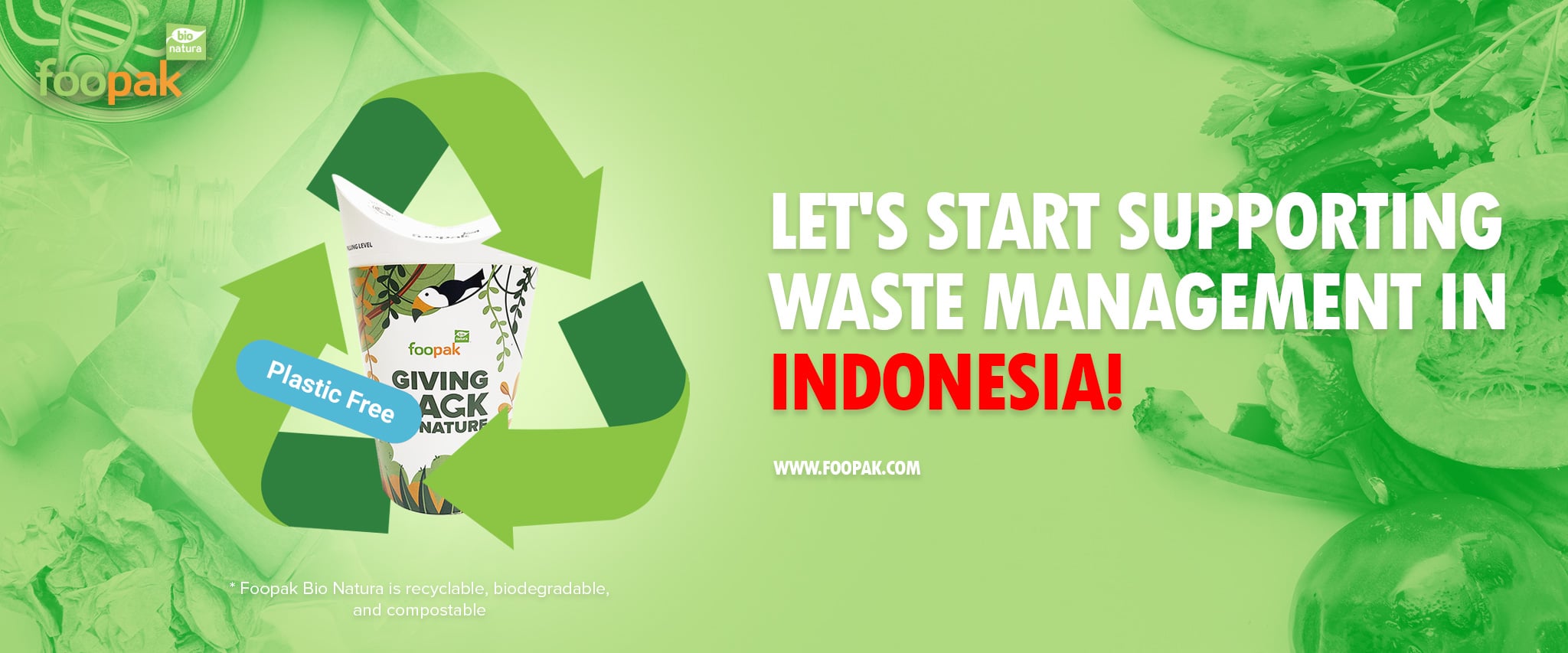The dense population and the lifestyle of people in big cities can affect the amount of waste produced. It won’t only affect the amount of waste but also the diversity of types and characteristics of waste, ranging from food scraps, cans, plastic bottles, single-use cups, and many more. Of course, the different kinds of waste can threaten the environment due to the variety of materials used, especially waste that is very difficult to biodegrade and compost.
In general, waste can be divided into organic and inorganic waste. Organic waste comes from nature, such as food scraps or leaves, and can be decomposed easily in the land or compost bin. Meanwhile, plastic, rubber, glass, and cans are categorized as inorganic waste. This type of waste should be disposed of in a place that has a plastic smelter or recycling facility. If the waste is mixed and difficult to separate, it will be directly sent to the landfill.
One of the major contributors to waste is coming from the household sector. Proper household waste management can help reduce the negative impact of waste on the environment, as the recycling center can easily separate the material in the recycling process.
That’s why the need to increase awareness of waste management is crucial with the concern of the environment and the people who may not be aware of the threat of piles of garbage that are now increasingly mounting and have a huge impact on future survival. Good waste management at the individual and household levels has an important role in helping to overcome waste in Indonesia and generally in every country.
APP has provided several talk shows and education blog posts to thoroughly review and educate the public, considering how important waste management is. One of them is the talk show in a broadcast “Good Morning Indonesia” on Metro TV on Friday, December 17, 2021. Director of APP Sinar Mas, Suhendra Wiriadinata, and the Director-General of Management of Waste and Hazardous Toxic Materials (PSLB3), Rosa Vivien Ratnawati SH, M.Sc discussed the waste management in Indonesia and how to tackle the issue.
As the main household waste sector, plastic waste became the main topic of discussion at the event. Mr. Suhendra said, “Quoting from the 2020 World Economic Forum, the estimated that there will be 460 million metric tons of waste in 2030. Even in 2040, there will be 29 million metric tons of waste in the sea. Plastic waste is very difficult to decompose, 10 to 1000 years depending on the characteristics of the plastic waste.”
The evaluation of waste management policies has been carried out according to Mrs. Rosa, Director General of PSLB3. Two big cities have prohibited the use of single-use plastics, and about 40 towns and districts promote limits on the use of single-use plastic shopping bags, which have a good impact on reducing the amount of waste in landfills.
Another policy carried out is the establishment of a waste bank. There are around 11,850 waste banks throughout Indonesia with a turnover of 58 billion rupiahs. The government believes that the waste bank will be an alternative solution. After sorting the waste from each household, the sorted waste will be taken to the waste bank for further sorting and recycling. The waste bank will purchase the sorted waste and give the benefit to the public with incentive. Mrs. Rosa said, “Indonesia’s waste recycling rate is still low, around 11-12%. The recycling rate is said to be low because the waste is not properly sorted.”
However, without proper education and guidance, people will be confused about the types of waste they need to sort. Paper cups and lunchboxes are good examples. While the paper cup and lunchbox are made from paper, it has a thin plastic lining outside or inside the packaging. The function of the plastic lining is to have better resistance to water and oil for the packaging and create a heat sealing function for the application. These functions are crucial, as the paper itself has a higher absorption of water and oil, making it soggy and unusable. The heat seal feature is also critical for good sealing to form good paper cup form or lunchbox form.
APP Sinar Mas, the largest paper producer in Indonesia, has launched Foopak Bio Natura, an environmentally friendly plastic-free food service board, to answer the needs of the current global plastic crisis and replace the conventional paper laminated with a thin layer of plastic. Mr. Suhendra specified that Foopak Bio Natura is recyclable, biodegradable, and compostable easily in industrial and backyards. Foopak Bio Natura reaches the wider community’s needs in local and international markets with a production capacity of 60,000 metric tons produced at PT. Indah Kiat Pulp and Paper, Tbk Serang. In addition to being plastic-free, Foopak Bio Natura is food grade and received a Halal certificate to ensure the product is well received in Muslim countries.
Mrs. Rosa appreciates the innovation of the Foopak Bio Natura product carried out by APP Sinar Mas. The next challenge is educating the public about waste management so that the products’ value does not stop there. The existing household and individual waste will end up in landfills, but it can be further managed into new useful and more valuable items.
Public awareness of the importance of protecting the environment must also be increased in daily matters such as not littering, sorting wet and dry waste, minimizing the use of plastic packaging, and assisting the authorities in waste management. Let’s start being wise individuals to deal with this waste problem with the hope of leading to a cleaner and healthier Indonesia and the world.
